Missing Letters Worksheets for Ages 4-8
7 filtered results
-
From - To
Explore our engaging Missing Letters Worksheets, designed for children ages 4 to 8! These interactive activities help young learners enhance their alphabet skills and letter recognition. Each worksheet features colorful visuals and fun exercises that prompt kids to fill in the blanks with the correct letters, reinforcing their understanding of the alphabet in an enjoyable way. Perfect for at-home practice or classroom use, these worksheets are tailored to various proficiency levels, ensuring a solid foundation in literacy. Support your child's learning journey while fostering creativity and critical thinking with our captivating Missing Letters Worksheets! Download now and spark excitement in learning!
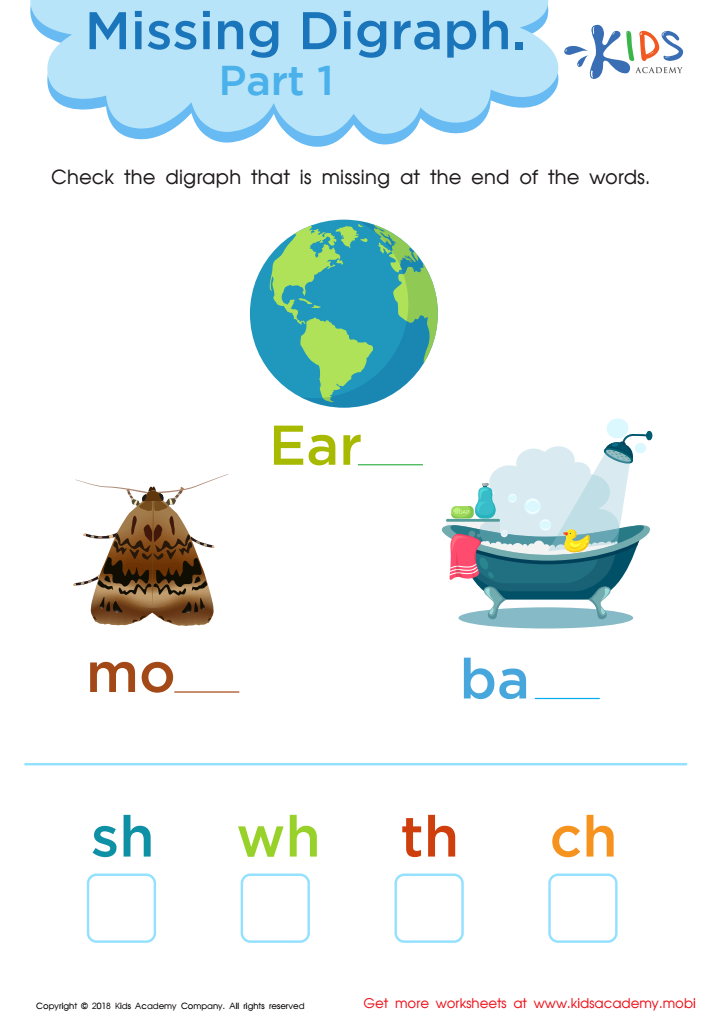

Missing Digraph: Part 1 Worksheet
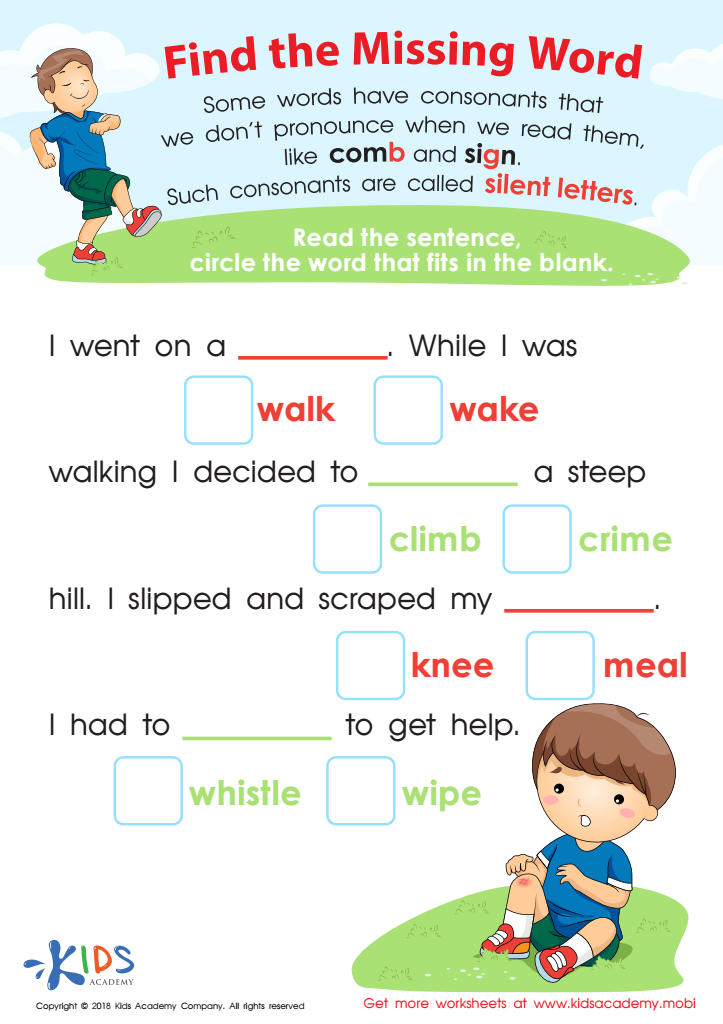

Find The Missing Word Worksheet
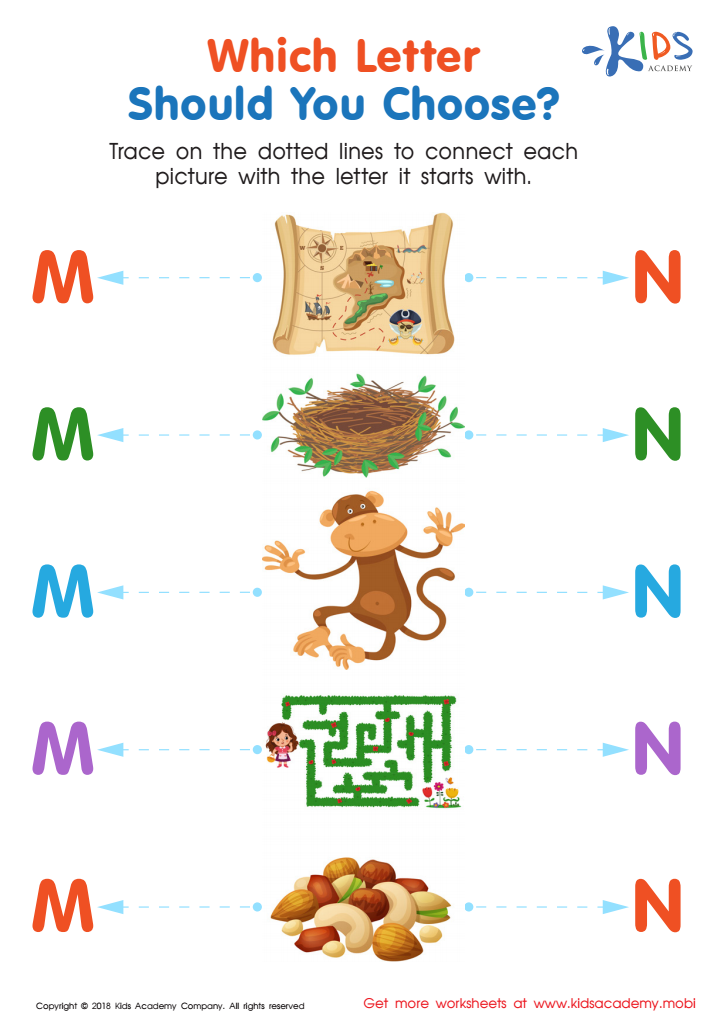

Which Letter Should you Choose? Worksheet
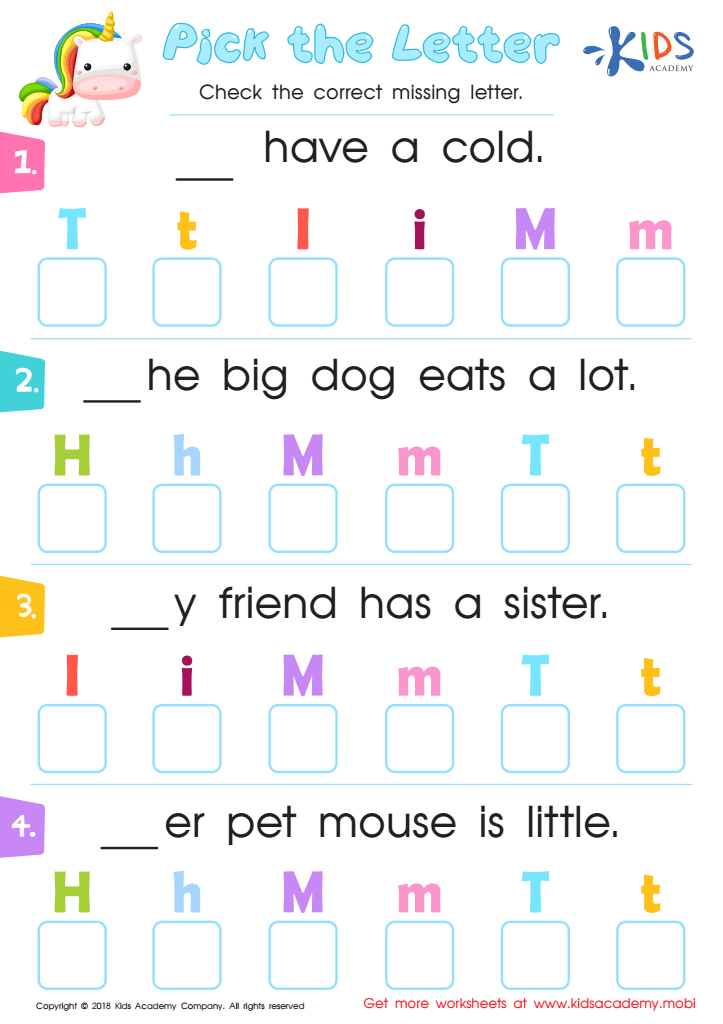

Pick the Letter Worksheet
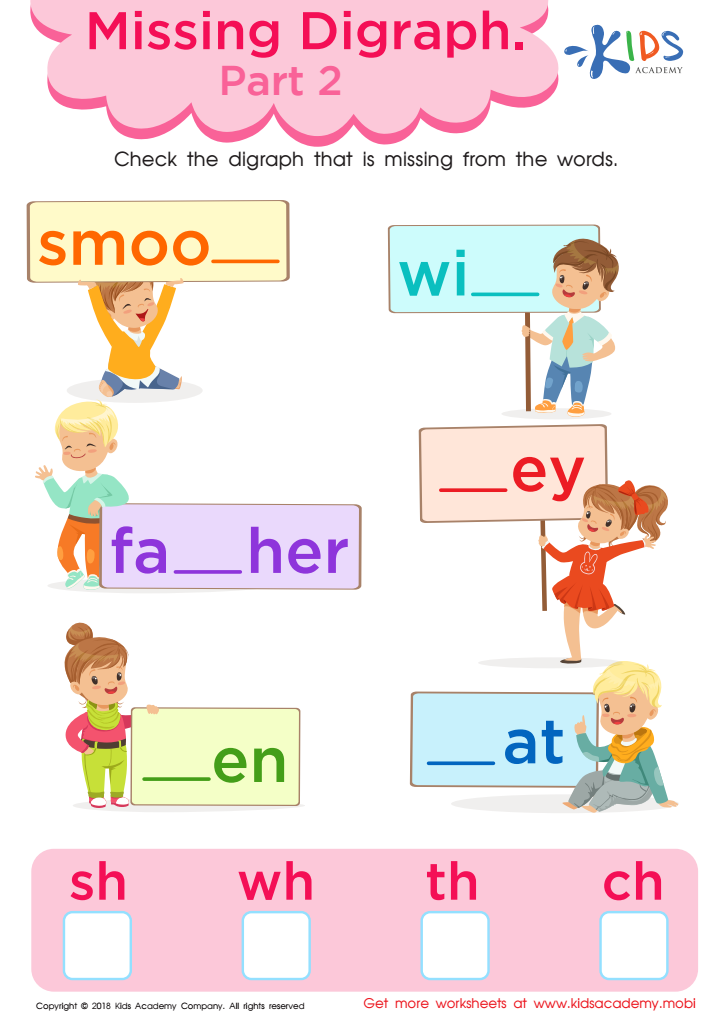

Missing Digraph: Part 2 Worksheet
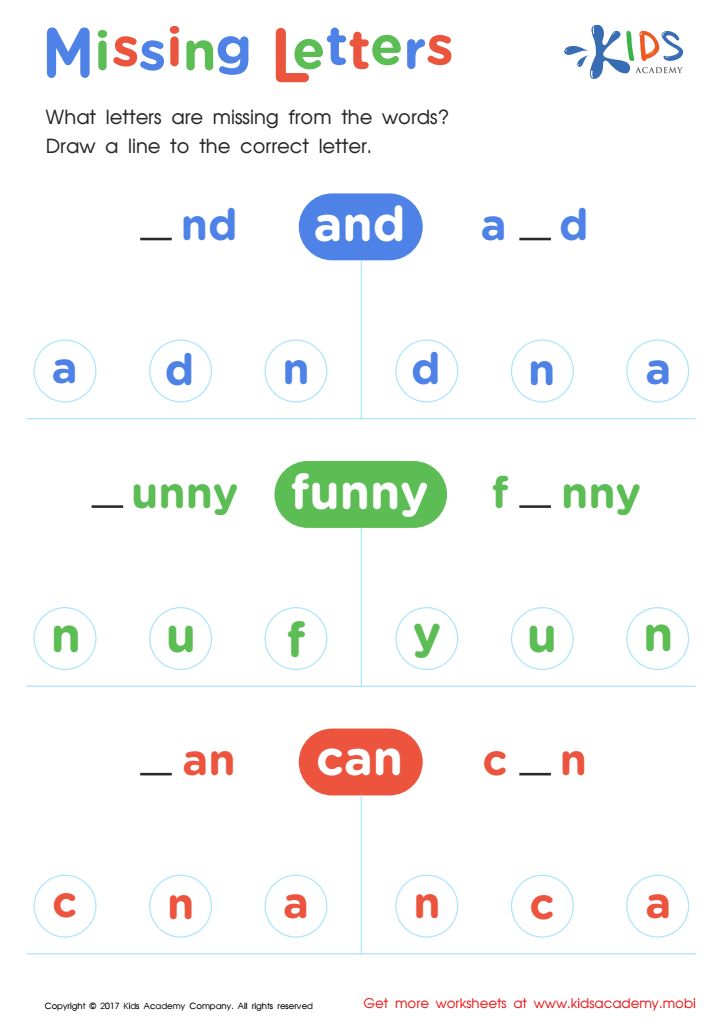

Missing Letters Worksheet
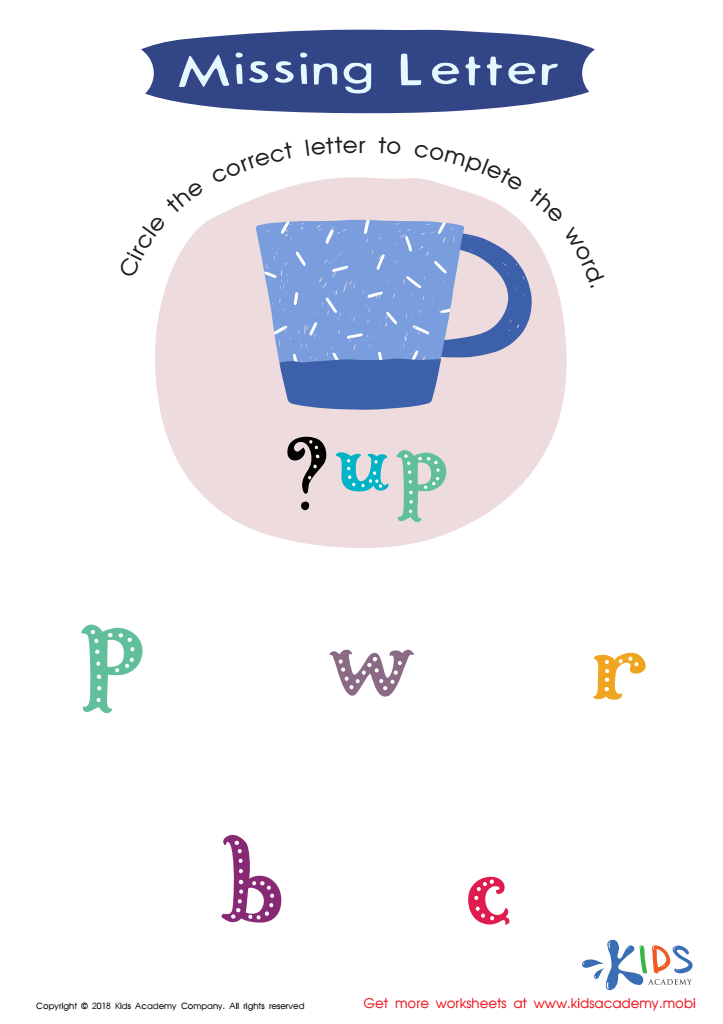

Missing Letter Worksheet
Missing Letters is an essential tool for children aged 4-8, focusing on early literacy skills that are foundational for their future academic success. At this stage, kids are rapidly developing their reading and writing abilities, and understanding letter recognition is crucial. Missing Letters encourages engagement, making learning interactive and fun. When children encounter exercises where letters are missing, they are not just filling in the blanks; they are honing their cognitive skills, enhancing their vocabulary, and improving phonemic awareness.
Parents and teachers should care about Missing Letters because it fosters essential skills and promotes confidence in young learners. As children connect sounds to letters, they build the groundwork for reading comprehension. This approach also supports differentiated learning; it can be tailored to individual skill levels, allowing both struggling and advanced learners to thrive. Missing Letters also encourages collaboration, as children often work in pairs or groups, which enhances social skills and teamwork.
Furthermore, early mastery of literacy creates a positive feedback loop—children who feel competent in their abilities are more likely to continue engaging with reading activities, leading to lifelong learning. By emphasizing Missing Letters in early education, parents and teachers are investing in a child's future success.
 Assign to My Students
Assign to My Students










